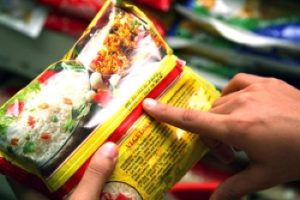FMCG
Prices Of Packed & Unpacked Foods To Be Fixed Uniformly
After the prices of honey and pulses slump making for a major breather for the consumer, the Government has now decided to fix the retail prices of all essential commodities. This means that retailers cannot sell items like sugar, pulses or milk at an inflated price even if they come in packets.
The New Norm
The notice, which was issued earlier this month on the 7th of September, specifies, “If the retail sale price of any essential commodity is fixed and notified by the competent authority under the Essential Commodities Act, the same shall apply.”
This move comes after certain experiences where consumers had to shell out a massively hiked price for pulses. A huge difference was noted between the retail prices of loose dal and those sold in packets. Following this, the Consumer Affairs Ministry has modified the legal metrology (packaged commodities) rules, therefore enabling governments to freeze retail prices.
 Image: Parakhi
Image: Parakhi
The Essential Commodities Act
The Essential Commodities – alias Act No. 10 of 1955 – is an Act of Parliament of India that ensures the delivery of certain commodities or products, which if obstructed owing to hoarding or black-marketing would affect the everyday life of the citizens. This act covers commodities like foodstuff, drugs, fuel (petroleum products), and the likes.
Further, Section 2 of this Act deals with the authority to control production, supply and distribution of essential commodities and also empowers the Centre to ask states to act accordingly. As per the law, states can take the required steps to regulate the price at which essential commodities are bought or sold. This power has been delegated to states.
In 2015, the Haryana state government fixed the MRP on pulses for retail sale. Currently, the Maharashtra government is also working to curb hoarding and/or fix MRP when there is a spike. Also, in July, the Consumer Affairs Ministry advised states to contemplate a pricing policy for pulses and other such essential food items. It also urged them to make the policy enforceable for all stakeholders in order to keep a tab on the prices of essential commodities, reports ET Retail.
 Image: Livemint
Image: Livemint
What Does This Mean?
According to the notification, once the government fixes and notifies the standard quantity such as 500 grams, one kg or two kg, the retailers will have to comply with the norms. Violation of packaged commodities rules can result in a fine of INR 5,000 and moreover the entire stock of the respective retailer will be detained. “Fine is not that big a deterrent as detaining the entire stock. The retailer cannot sell or dispose of the entire quantity under this law,” said a source.
“The government has been forced to look for such measures as abnormal increase in prices of pulses was artificially created,” the source said, adding that implementation of these new standards would also invalidate the concept of maximum retail price (MRP) in case of essential commodities.
 Image: amicuscuriea.blogspot.com
Image: amicuscuriea.blogspot.com
Meanwhile, for those who are not in the know, as a consumer you can bargain over the MRP of packaged products.
Feature Image: The Better India




















